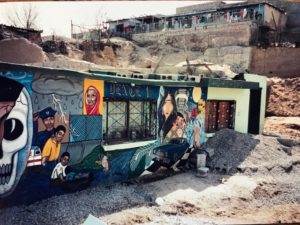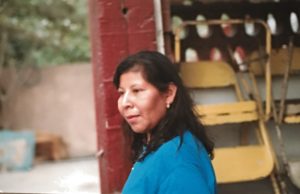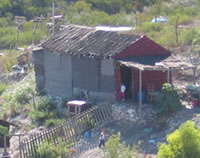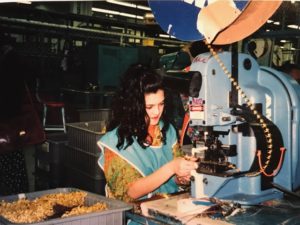
Excerpt: The Maquiladoras: Licensed to Exploit, Profit, and Oppress It is not difficult to pick out the setting of a maquiladora in a Mexican border city. Their physical infrastructure broadcasts power… Click here to read a summary. Click here to read the complete article.
THREE ESSAYS published in series in the journal Frontera Norte-Sur. Thank you, Frontera Norte Sur.
Essay One on leadership. “Becoming Leaders: the Women in the Maquiladoras of Piedras” by Elvia Rosales Arriola, J.D., M.A., Summer, 2000
As I think about returning to Piedras Negras, Coahuila for a second set of interviews this weekend with women maquiladora workers, I remember the faces of the first group of obreras I met through the Comité Fronterizo de Obreras (CFO, or in English, the Border Committee of Women Workers) who talked about their struggles as poorly paid workers and their continual efforts to obtain a true living wage for themselves and their co-workers. The CFO is a group of women workers who use home meetings Continue reading
Essay Two on housing conditions for workers and families. “Looking Out from a Cardboard Box: Workers, Their Families, and the Maquiladora Industry in Ciudad Acuna, Coahuila” by Elvia Rosales Arriola, J.D., M.A., December 2000
It was late morning when I parked outside the home of Rosa María “Rossy” Ramos Rivas, 34 years old and the mother of two young boys. As I stepped out of the car, I was careful to zip up my briefcase, a little worried that my tape recorder would fall into the mud left from the heavy rains that had fallen over Ciudad Acuña, a border town with a booming maquiladora industry that sits across from Del Rio, Texas. Rossy had just awakened, as she works a 5 p.m. to 2 a.m. night shift at General Electric in Ciudad Acuña. She, her boys César and Marco, and her husband Abraham live in a two room house that she considers an improvement to the days when her family had no more than a blanket…Continue reading
Essay Three, on working women organizing for justice. “Of Woman Born: Courage and Strength to Survive in the Maquiladoras of Reynosa and Rio Bravo, Tamaulipas” by Elvia Rosales Arriola, J.D., M.A.,
As 27-year old María Elena García Sierra pulled off her white sock to show me the places on her feet where she suffered a recurring infection that began when she was 17, I struggled to contain my horror as I fumbled with a video camera to look at the scars. Pointing to the affected areas, she continued with her personal history as a maquiladora worker. . . Continue reading




